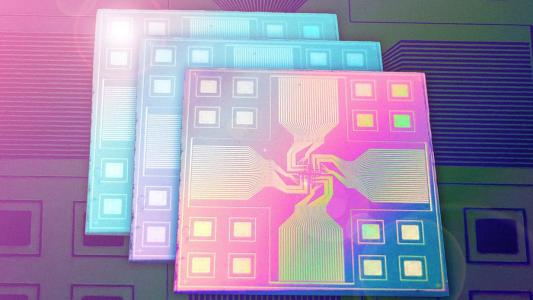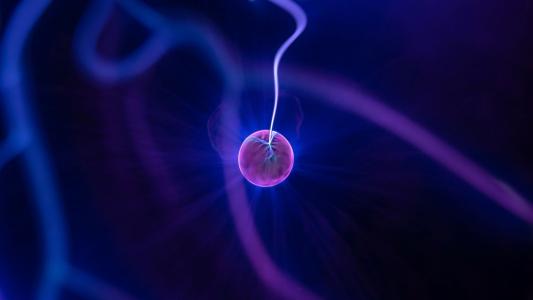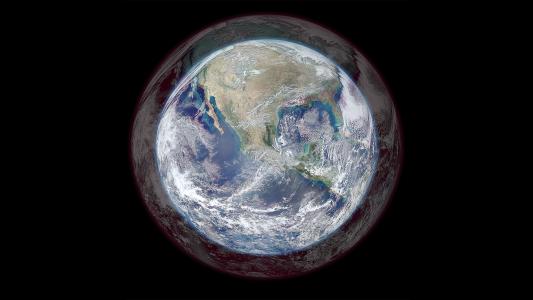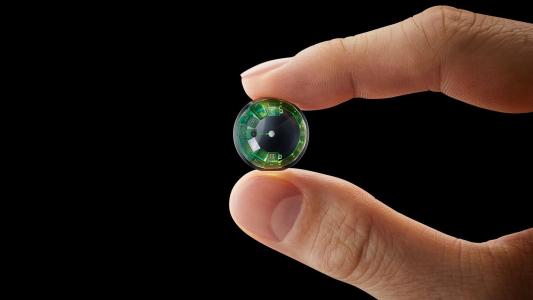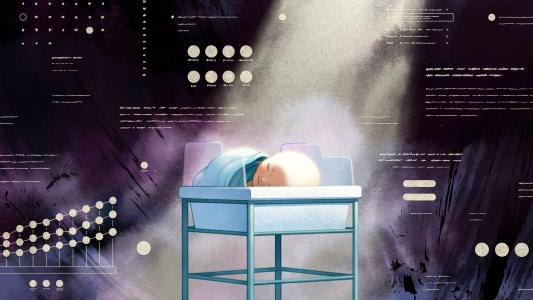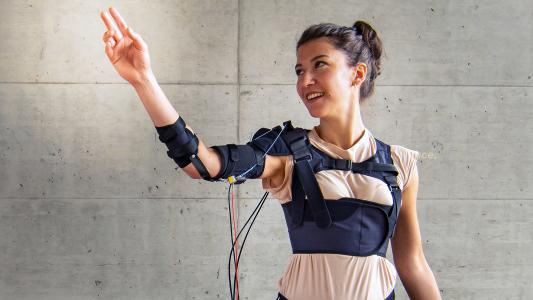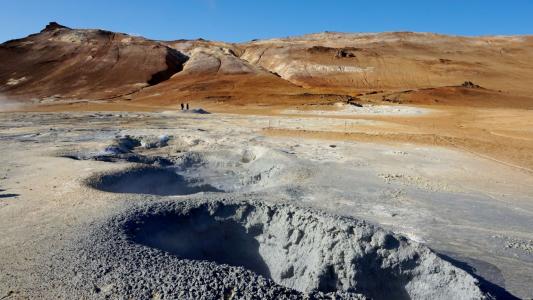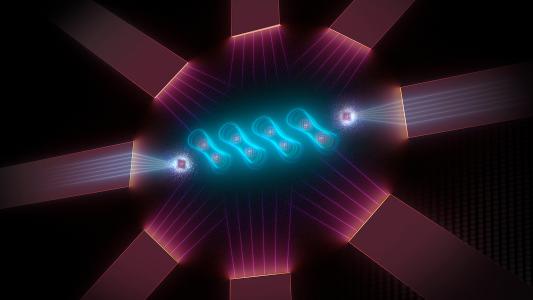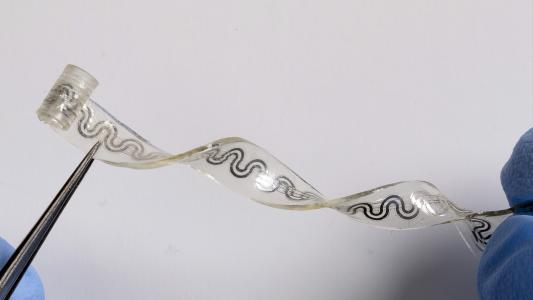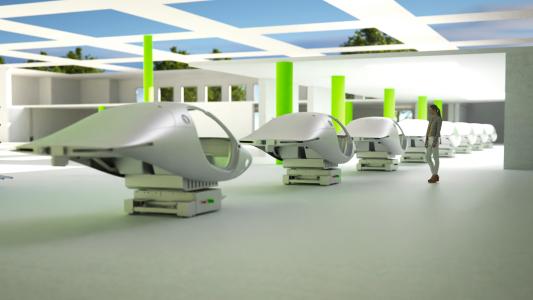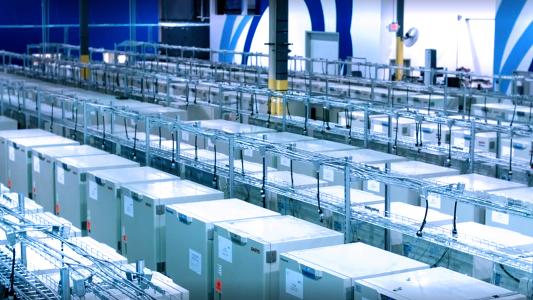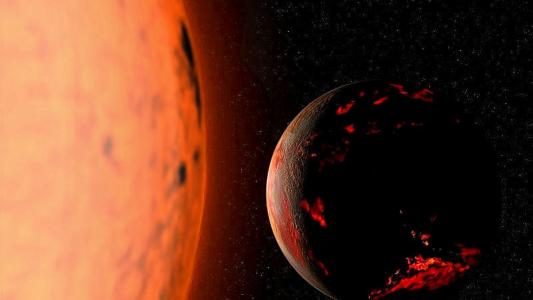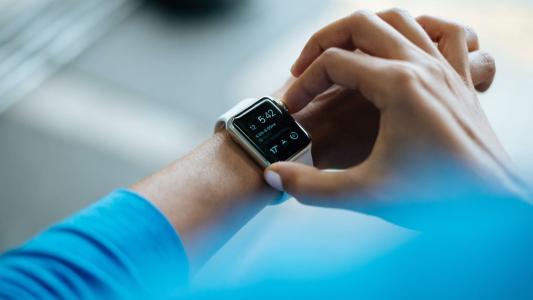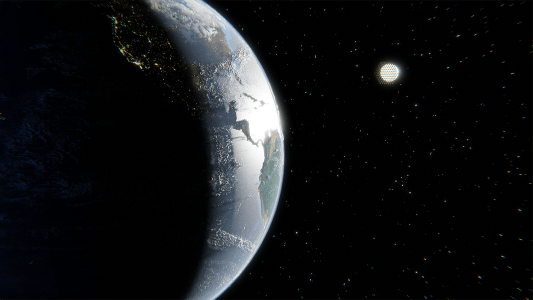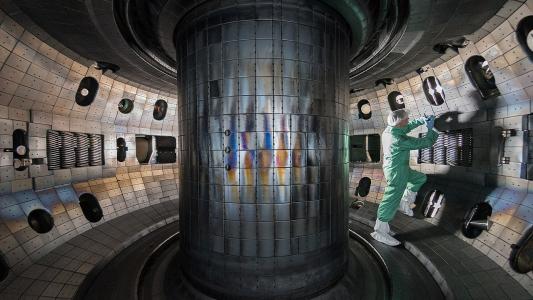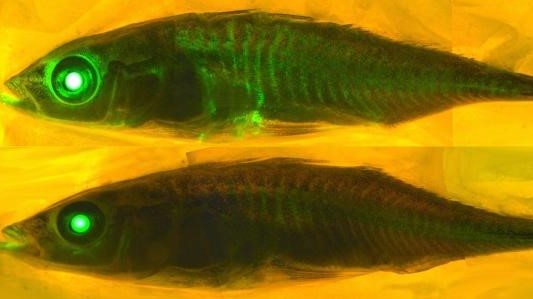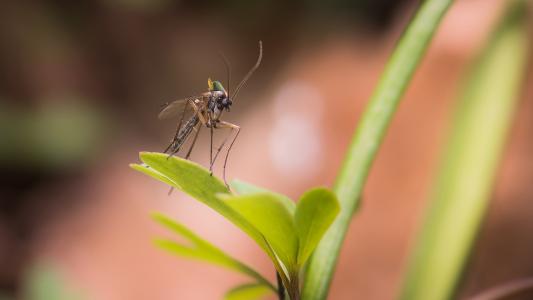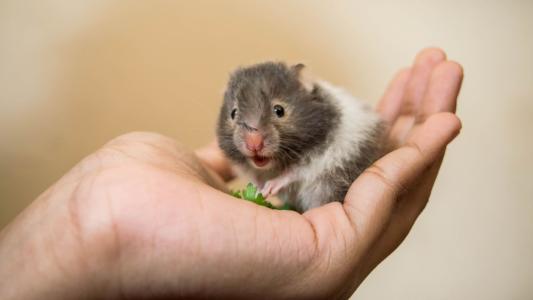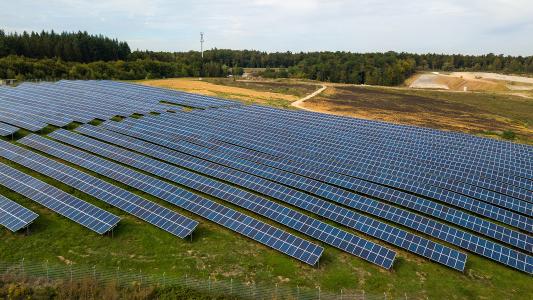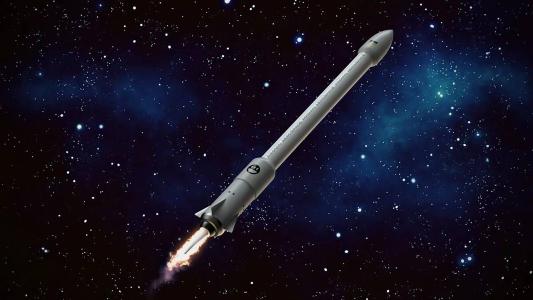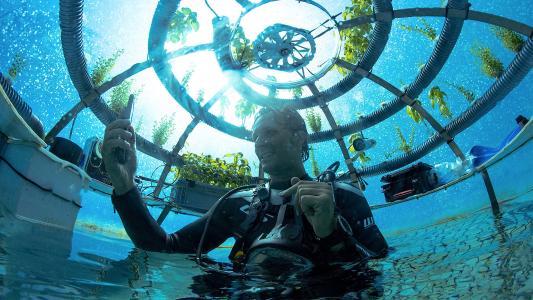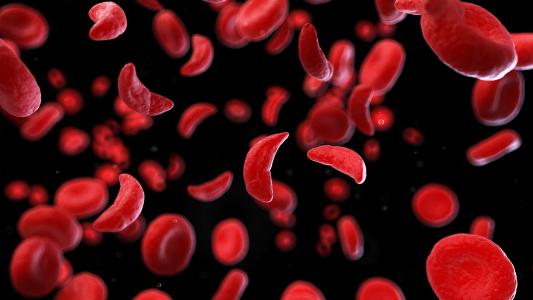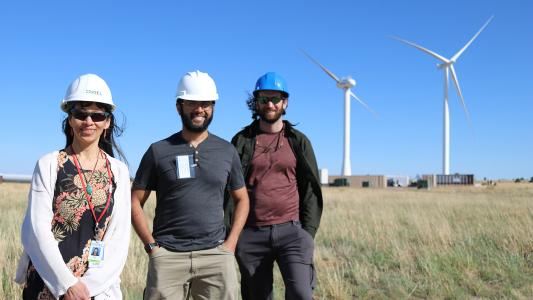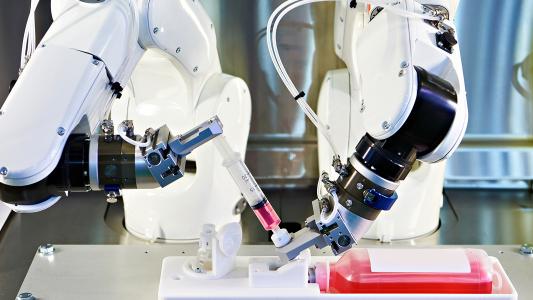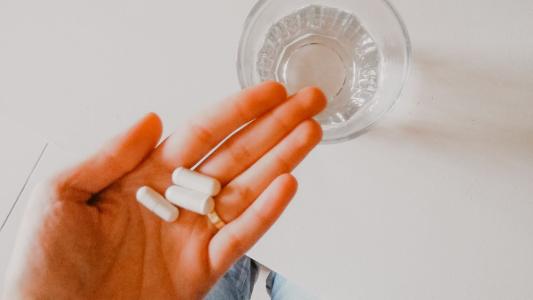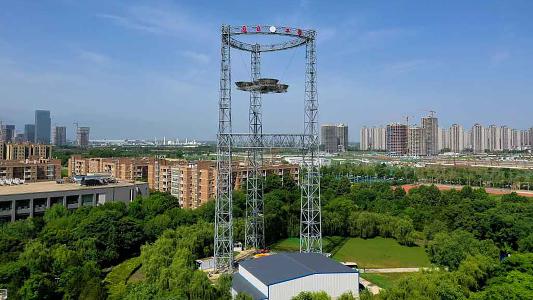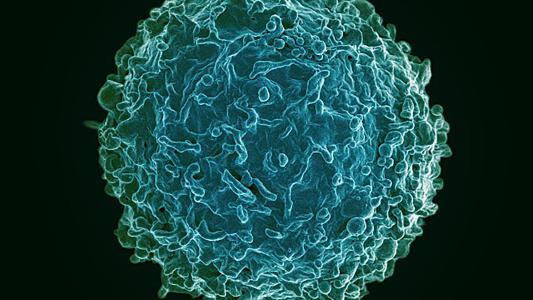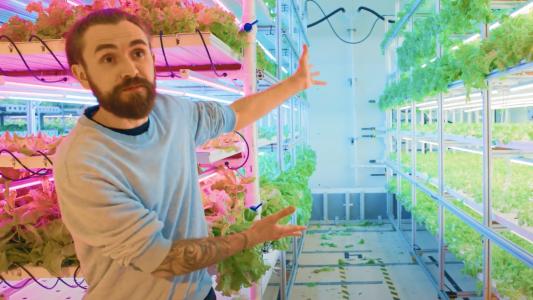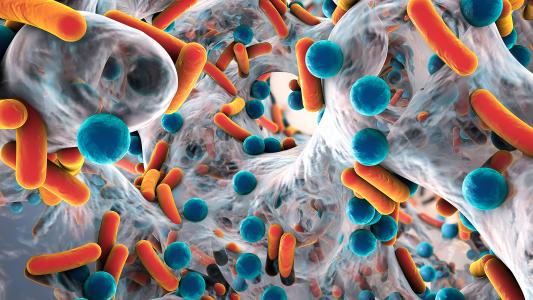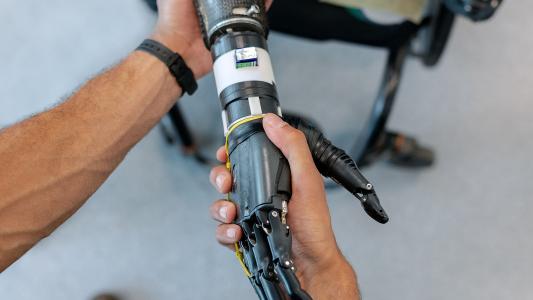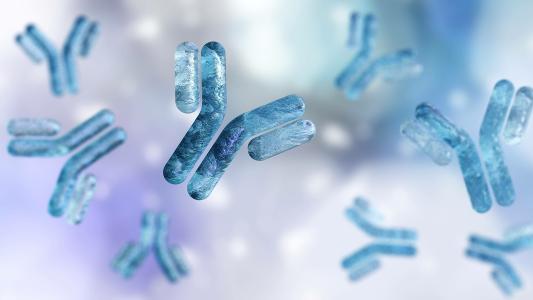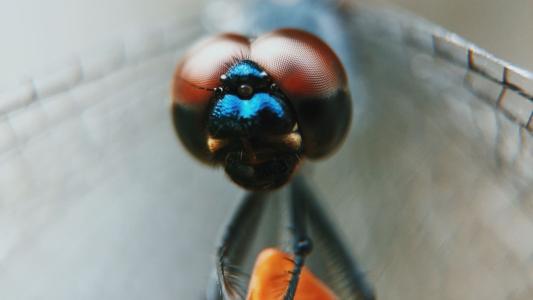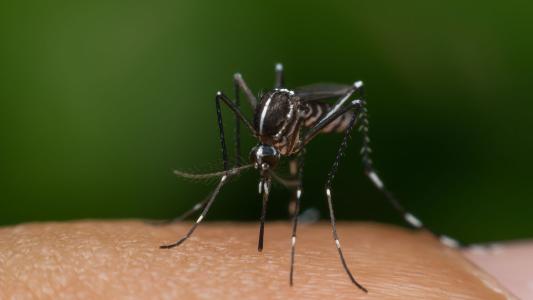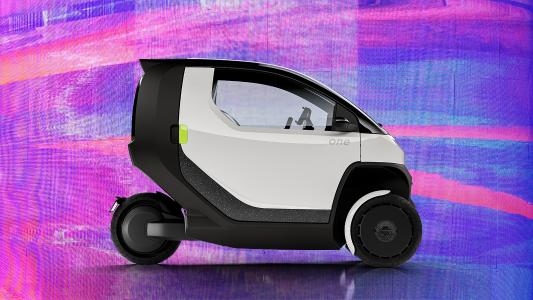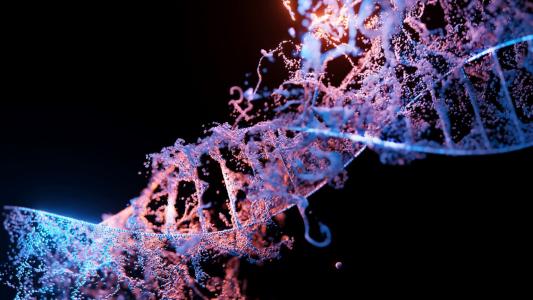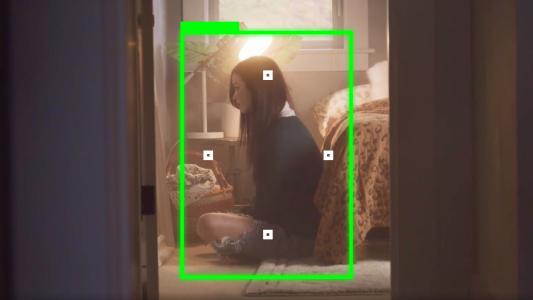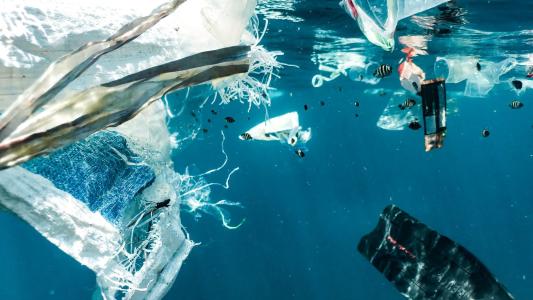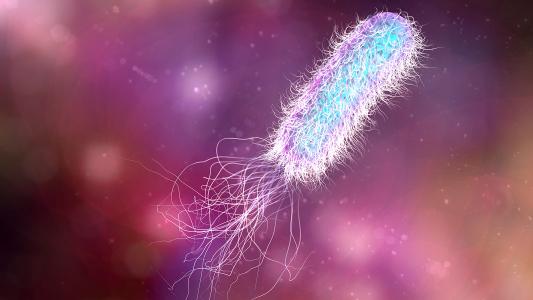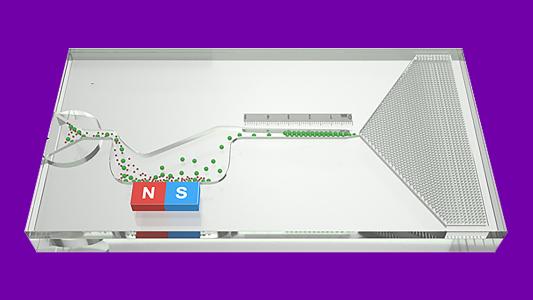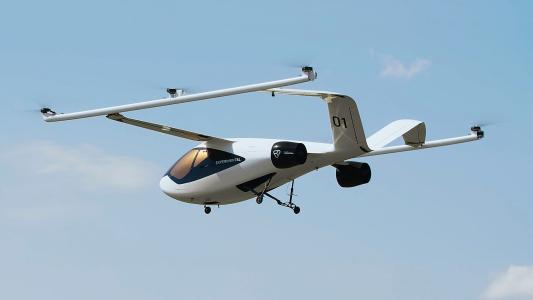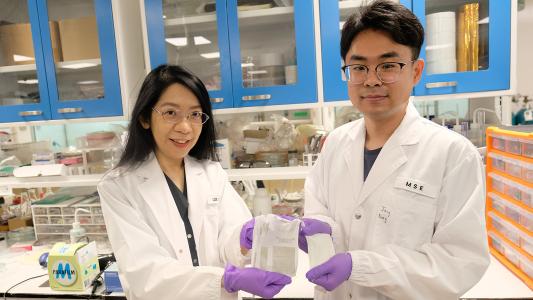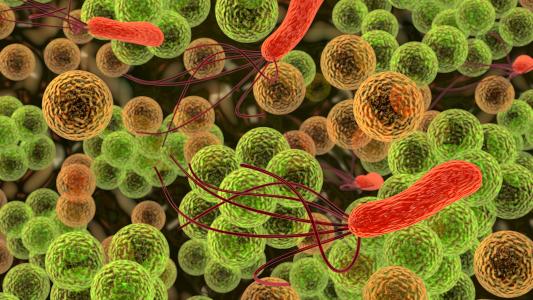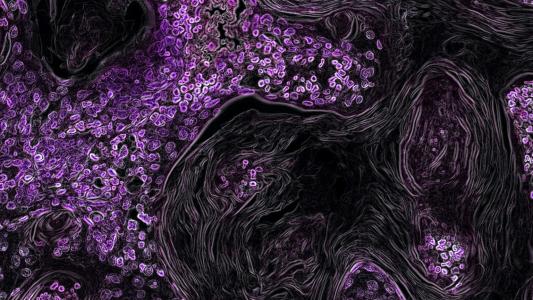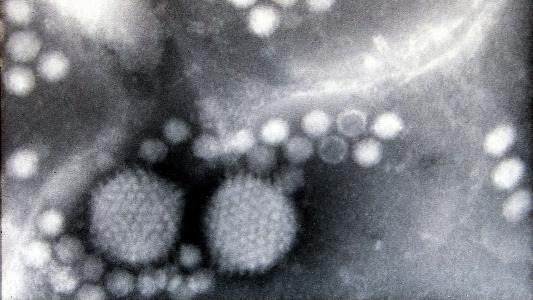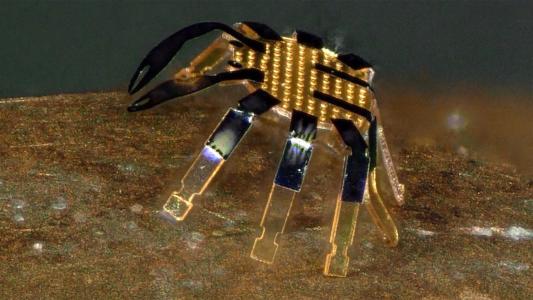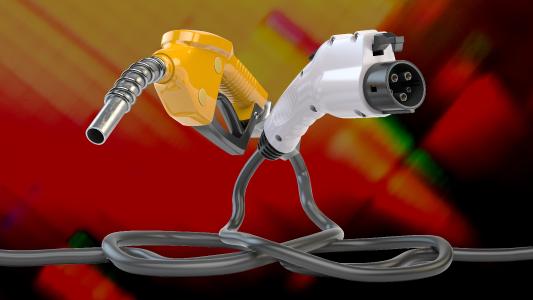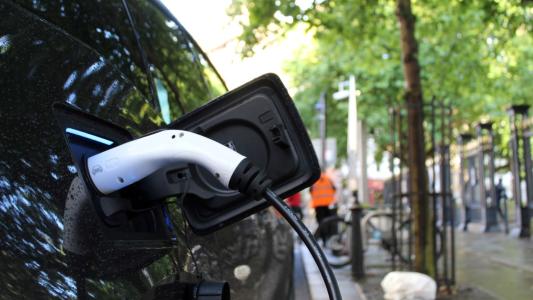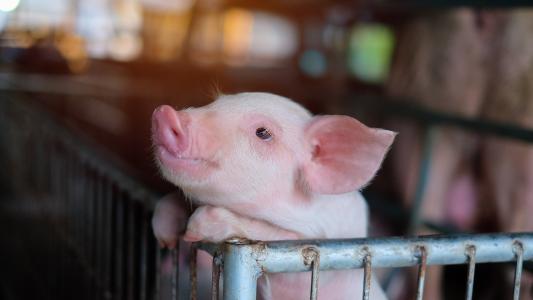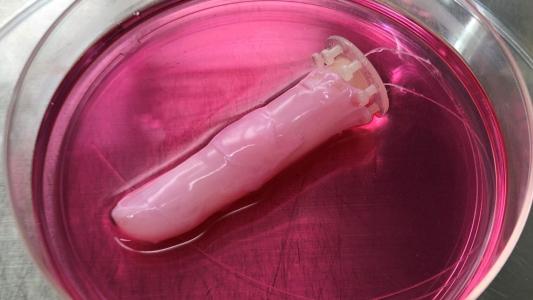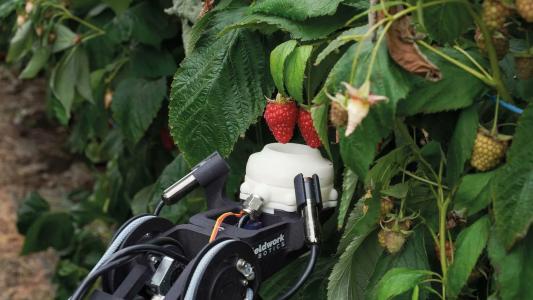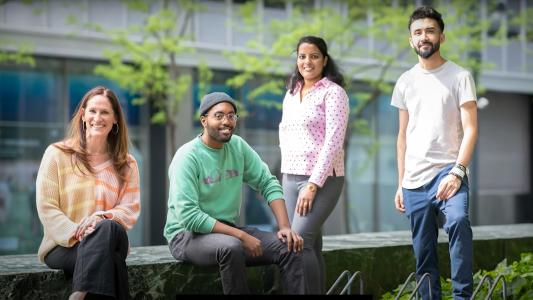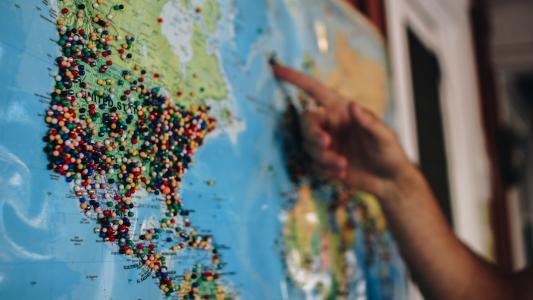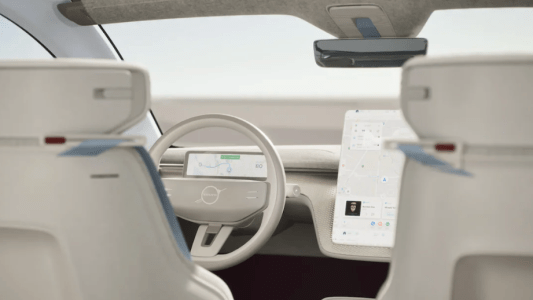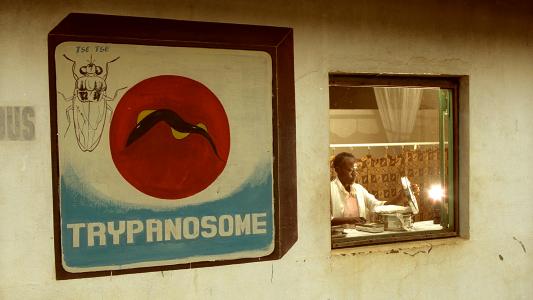The cosmos can kill us in many ways. But the James Webb Space Telescope can help save us
Asteroid strikes, supernova explosions, and gamma-ray bursts are just a few of the ways the cosmos can kill us.
How three kids got kidney transplants without immunosuppressants
Stanford researchers have developed a new technique that allowed three children to receive kidney transplants without immunosuppressants.
Engineers build LEGO-like artificial intelligence chip
Engineers have created an AI chip with alternating layers of sensing and processing elements that can communicate with each other.
Scientists see “rarest event ever recorded” in search for dark matter
Researchers observed an ultra-rare particle interaction that reveals the half-life of a xenon-124 atom to be 18 sextillion years.
How one deaf entrepreneur turned rejection into a profit
In partnership with Million Stories
Melody Stein created a top-notch pizza joint that offered the Deaf community a rare dining luxury: instant communication.
Chinese astronomers unveil a plan to find Earth 2.0 — and aliens
China’s Earth 2.0 mission will survey the Milky Way in the hope of identifying exoplanets similar to Earth.
You can “see the future” with these smart contact lenses
Mojo Vision’s smart contact lens has finally made the leap to human testing, bringing the future of AR a major step closer.
A world map of start-up ambitions
In New Zealand, ambitious Kiwis want to launch a lawn mowing business; in South Africa, it's cooking gas refills. Start-up dreams vary widely.
He lost his baby daughter. Then he turned his grief into a tool for NICU parents.
After losing his daughter, a father found a way to help other NICU parents.
“Muscle shirt” increases arm endurance by more than 200%
The Myoshirt acts like “wearable muscles,” using sensors and AI to help people with upper-limb impairments move their arms.
Engineers create world’s first carbon-neutral cement out of algae
Cement production currently accounts for 8% of global carbon emissions.
This is the damage a tiny speck of space debris can do at 15,000mph
A crater 5 inches deep was caused by something about the size and weight of an eraser on the end of a pencil.
Australian scientists put the quantum world on a microchip
A first-of-its-kind quantum simulator could lead to the creation of never-before-seen materials powered by quantum phenomena.
How cancer science is creating a sunscreen that lasts all day
NYU chemists have taken lessons learned from cancer drug development to create a longer-lasting sunscreen ingredient
Do optimists really live longer? Here’s what the research says
Research shows if you cultivate a more optimistic mindset, you might further increase your chances for a long life.
“Passive cooling” could reduce indoor temps by up to 25 F in a heat wave
University of Oregon researchers have discovered that simple acts like drawing shades during peak sun and opening windows at night may help save lives during heatwaves.
This artificial island will power 3 million European households
Denmark is building an artificial island in the North Sea that will eventually be capable of meeting all the nation’s electricity needs.
This implant cools off nerves to give targeted pain relief
A tiny implant that wraps around nerves and cools them to deliver targeted pain relief could help address the opioid crisis.
$26K solar car now has a factory
Solar car startup Aptera has purchased a factory where its vehicles will be carried from station to station by autonomous robots.
Winners announced: $50K Beautiful Minds competition on innovating higher ed
In partnership with Lumina
Each organization is helping people to prepare for and succeed in our fast-changing world.
Discovery reveals how scary memories stick
Researchers believe they may have discovered the mechanism behind fear’s sticking power in our memory.
What happens if the Solar System’s largest comet collides with Earth?
The asteroid that caused the last mass extinction 65 million years ago was only 5 kilometers across — tiny compared to this one.
17 pictures that show how mind-bogglingly large the Universe is
Our entire planet is a little under 13,000 kilometers in diameter, or about seven orders of magnitude greater than the size of a human.
This startup wants you to have a personal stem cell stash
GoodCell wants patients to store the cells that can become stem cells for possible use later in life.
When will the Earth come to an end?
There are many different "ends" in store for our planet, in both the near and far future. Here are the ways our planet will meet its demise.
Wearable tech: eating and playing our way to a longer lifespan
Wearable devices can detect the specific molecules in food and our body’s response to it, allowing us to make better dietary decisions.
Spray-on “peel” for produce helps reduce plastic pollution
A Bill Gates-backed startup is helping reduce plastic pollution and food waste by coating produce in an edible spray.
MIT proposes Brazil-sized fleet of “space bubbles” to cool the Earth
A raft of “space bubbles” could be used to reverse global warming, according to an MIT group's solar geoengineering proposal.
New nuclear fusion reactor design may be a breakthrough
Nuclear fusion reactors have existed for years, but none of them are able to sustainably produce energy yet.
A celebrated AI has learned a new trick: How to do chemistry
We had a challenging question for the AI AlphaFold – had its structural training set taught it some chemistry?
The $10.6 million 3D-printing startup that almost lost it all
In partnership with Million Stories
Starting a toy company isn’t all fun and games.
A “Peter Pan” chemical could stop mosquitoes, without hurting other insects
Entomologist Naoki Yamanaka has an idea for how to handle mosquitoes: What if we just stop them from growing up?
Gene editing gone wrong: Scientists accidentally create angry hamsters
A team of scientists used gene editing to create what they thought would be a calmer rodent. Instead, the gene-edited rodents were angrier.
How artificial intelligence is boosting crop yield to feed the world
The Gene Ranking Artificial Intelligence Network (GRAIN) identifies genes that act at a fundamental level in crop metabolism.
A dog cancer vaccine may save them and, one day, us
Dutch researchers have created a dog vaccine which may pave the way for similar human therapies.
Magnetic robot can save lives after a brain hemorrhage
Researchers have developed a microbot-containing, magnetically controlled catheter for removing blood from brain hemorrhages.
Former landfills are becoming “brightfields”
US cities are covering the capped sites of former landfills with solar panels, turning the “brownfields” into “brightfields.”
Ukrainian startup expects to fly “self-devouring” rocket in 2022
Ukrainian startup Promin Aerospace is developing a “self-devouring” rocket built from a material that its engine can burn as fuel.
How to be a techno-optimist
Technology will not save the world, and it is inherently neither good nor bad. But, when tech is coupled to human virtue, good will prevail.
Dive into the world’s first underwater garden
An underwater garden off the coast of Italy is introducing the world to a new type of sustainable agriculture.
CRISPR cure for sickle cell nearly 100% effective after three years
A CRISPR therapy for sickle cell disease and beta thalassemia looks close to 100% effective three years after infusion.
These bendy wind turbines won’t crack in hurricanes
To significantly scale up offshore wind turbines, SUMR researchers are testing a design inspired by the flexibility of palm trees.
Google has not created sentient AI — yet
Google can make AI seem sentient, but the AI has no understanding of what it is saying. But humans are easily fooled by conversational AI.
Cloud labs are the “ghost kitchens” of science
Cloud labs which run experiments with robots remotely may make science more efficient, replicable, and accessible.
This molecule may be the “secret sauce” of exercise — but it won’t work as a pill
Administering Lac-Phe to obese mice significantly lowered their appetite, reduced body fat, and improved glucose tolerance.
Gene-edited wheat less likely to produce “probable carcinogen” acrylamide
A new gene-edited wheat contains 90% less of a compound that can turn into acrylamide — a likely carcinogen — when the crop is cooked.
After millennia of agricultural expansion, the world has passed “peak agricultural land”
This marks a historic moment in humanity’s relationship to the planet.
China successfully tests space-based solar power components
Researchers at China’s Xidian University have successfully tested a proof-of-concept for collecting solar power via satellites.
CRISPR could create a one-shot treatment for HIV
Researchers have used gene editing to engineer HIV-fighting immune cells inside the bodies of mice.
Engineers develop nanoparticles that cross the blood-brain barrier
Tested using a new brain tissue model, the particles may be able to deliver chemotherapy drugs to cancer patients.
Why growing food indoors is the future of farming 
In partnership with Million Stories
How a poker prodigy “accidentally” created a booming lettuce company.
Satellites zoom in on cities’ hottest neighborhoods
In “micro-urban heat islands,” communities can experience heat wave conditions well before officials declare a heat emergency.
Here is how to send a distress signal to space from anywhere on Earth
International search-and-rescue program Cospas-Sarsat uses satellites and emergency beacons to locate and help people in distress.
Hyundai’s autonomous ship is the first to make a transoceanic journey
Autonomous ships like the Prism Courage could make the seas safer, while also making shipping cleaner and more efficient.
This starchy wondercrop could help alleviate food insecurity
Enset, a perennial banana-like fruit cultivated in southwestern Ethiopia, is an underexploited starch crop with significant potential.
CRISPR can create a “captain’s log” for bacteria traveling through the microbiome
A team at ETH Zurich has modified E. coli to work like biological recorders of the processes of the gut.
Apple Watch now approved to track Parkinson’s symptoms
Apple Watch motion data will now be incorporated into Rune Labs’ StrivePD app, which tracks Parkinson’s symptoms.
We may want to rethink how we deliver COVID-19 vaccines
An inhaled vaccine outperformed a nasal spray in an animal study, suggesting that the delivery method could deserve more attention.
How the brain responds to surprising events
Unexpected outcomes trigger release of noradrenaline, which helps the brain focus its attention and learn from the event.
Is our world ready for mind-controllable robotic body parts?
Advanced neuroprosthetics are here, and they could hook our brains into the Internet of Things.
A groundbreaking solution could unleash our hydrogen future
German researchers have created genetically engineered bacteria that can rapidly store and release hydrogen fuel.
Moms’ “super-antibodies” point the way to new antibody medicines
Pregnancy bestows on babies enhanced antibodies that can protect against a broader range of disease. Now, we know how.
Magic mushrooms evolved to scramble insect brains, send them on wild, scary trips
Researchers discovered that the way fungi independently gained the ability to produce psilocybin is because of horizontal gene transfer.
Future tech could 3D print objects inside your body
Direct sound printing could one day allow doctors to build medical implants inside patients’ bodies instead of surgically placing them.
A vaccine against mosquito saliva may be the key to stopping their diseases
University of Leeds researchers have identified a compound in mosquito saliva as a potential target to protect against multiple viruses.
Why Africa’s newest super-bridge is in the continent’s weirdest border zone
The Kazungula Bridge has turned a cartographic near-miss into a geopolitical marvel, with a chance to renew Africa's economy.
New test tells you how many T cells for COVID-19 you have
A new blood test that measures a key indicator of COVID-19 immunity could help you assess your risk of a coronavirus infection.
This compact electric vehicle wants to combine a scooter and a car
Nimbus is now taking pre-orders for its compact electric vehicle, which splits the difference between scooter and car.
New CRISPR-based map ties every human gene to its function
Researchers used a single-cell sequencing tool Perturb-seq on every expressed gene in the human genome, linking each to its job in the cell.
How facial recognition is identifying human trafficking victims
In partnership with Clearview AI
The technology is enabling law enforcement to shine a light on the darkest corners of the open internet.
The age reversal tech that billionaires are banking on
How long can a human being not only live but thrive? A race to find out involves some of the biggest names (and bank accounts) in tech.
Where does the plastic in our oceans come from?
Which countries and rivers emit the most plastic to the ocean? What does this mean for solutions to tackle plastic pollution?
A smart bomber for bacteria could help save antibiotics
Brown University researchers have developed a “smart” drug delivery system that only releases its payload when bacteria are present.
Handheld antibody tester could reveal if you’re immune to COVID
Hong Kong researchers have developed a handheld COVID antibody testing device more capable than current home tests.
Theory of mind: What chess and drug dealers can teach you about manipulation
Every social interaction is a game of chess, trying to get inside someone’s head to navigate what they are thinking or what they will do.
Pilotless German air taxi flies for first time
Volocopter’s four-seat air taxi — the VoloConnect — has completed its maiden flight and is on track for a 2026 commercial launch.
Washable smart fabric turns movement into electricity
NTU Singapore researchers have developed a washable, stretchy smart fabric that turns movement into electricity.
We need to know about progress if we’re concerned about the world’s large problems
Our World in Data explains their mission to publish the “research and data to make progress against the world’s largest problems.”
Tiny nanoscale drills can bore holes right through bacteria
Rice University researchers have developed tiny, bacteria-boring drills in an effort to stop superbugs.
The key to fighting fungal infections may have been inside us all along
MIT researchers have discovered that complex molecules in mucus can keep fungal infections in check.
Virginia launches world’s biggest 3D-printed housing project
Construction company Alquist 3D plans to build 200 3D-printed houses over the next 5 years through Project Virginia.
“Stealth bomb” for cancer unlocks powerful immune attack
A "masked" cancer drug stealthily trains immune system to kill tumors while sparing healthy tissues, reducing treatment side effects.
Gene therapy fixes rare heart disorder with clever workaround
Cleveland Clinic researchers have developed a gene therapy that cured arrhythmias in mice.
Tiny robotic crab, controlled by lasers, can run, twist, and jump
A new robotic crab has a sophisticated structure for its size, but it can still be manufactured using a relatively simple process.
The biggest myths about electric vehicles
Electric vehicle sales are skyrocketing, but misinformation about the tech is still rampant. These are seven of the biggest myths about EVs.
Electric car supplies are running out
People who aspire to own a brand new electric vehicle will struggle to move forward. Will this also slow down the journey to net-zero?
Chinese robot clones pigs with no human help
A robot that automates a common technique for animal cloning has been used to produce a litter of pigs in China.
Stimulating deep sleep may improve brain health, memory, and mood
Researchers are trying to harness deep sleep to bolster the glymphatic system, which helps flush brain tissue.
Self-healing robot skin created out of human cells
University of Tokyo researchers have created a living skin, made from human cells and collagen, for a robotic finger.
The US Civil War drastically reshaped how Americans deal with death – will the pandemic?
How do American's attitudes towards death change when they are confronted with such enormous losses?
New harvesting robots are gentle enough to pick this fruit
A pair of harvesting robots are picking raspberries in Portugal, demonstrating the ability of tech to help combat seasonal labor shortages.
Small trial of cancer immunotherapy sends every patient into remission
Every participant in a small trial testing a rectal cancer immunotherapy has had their disease go into complete remission.
Geopsychology: Your personality depends on where you live
Scientists in the relatively new field of “geopsychology” are seeing links between personality and location.
Volvo to bring photorealistic graphics to electric cars through Unreal Engine
The world's most popular graphics engine isn't just for video games.
MIT grads demonstrate first ammonia-powered tractor
Amogy, a startup founded by four MIT grads, has transformed a John Deere into the world’s first zero-emission, ammonia-powered tractor.
Digital technology can cut global emissions by 15%. Here’s how.
The grand challenge for humanity is to ensure that groundbreaking technologies have a clear purpose for our planet.
Three more nations eliminate sleeping sickness as a public health threat
Sleeping sickness is a horrifying disease mainly impacting the rural poor. But three more African nations have succeeded in curtailing its threat.
Nuclear isomers were discovered 100 years ago
Protons and neutrons in an atom’s nucleus can be arranged in different configurations, creating nuclear isomers.
Massive turbine turns deep ocean currents into electricity
Deep ocean currents could be an economically viable source of clean energy, based on a recently wrapped demo in Japan.


